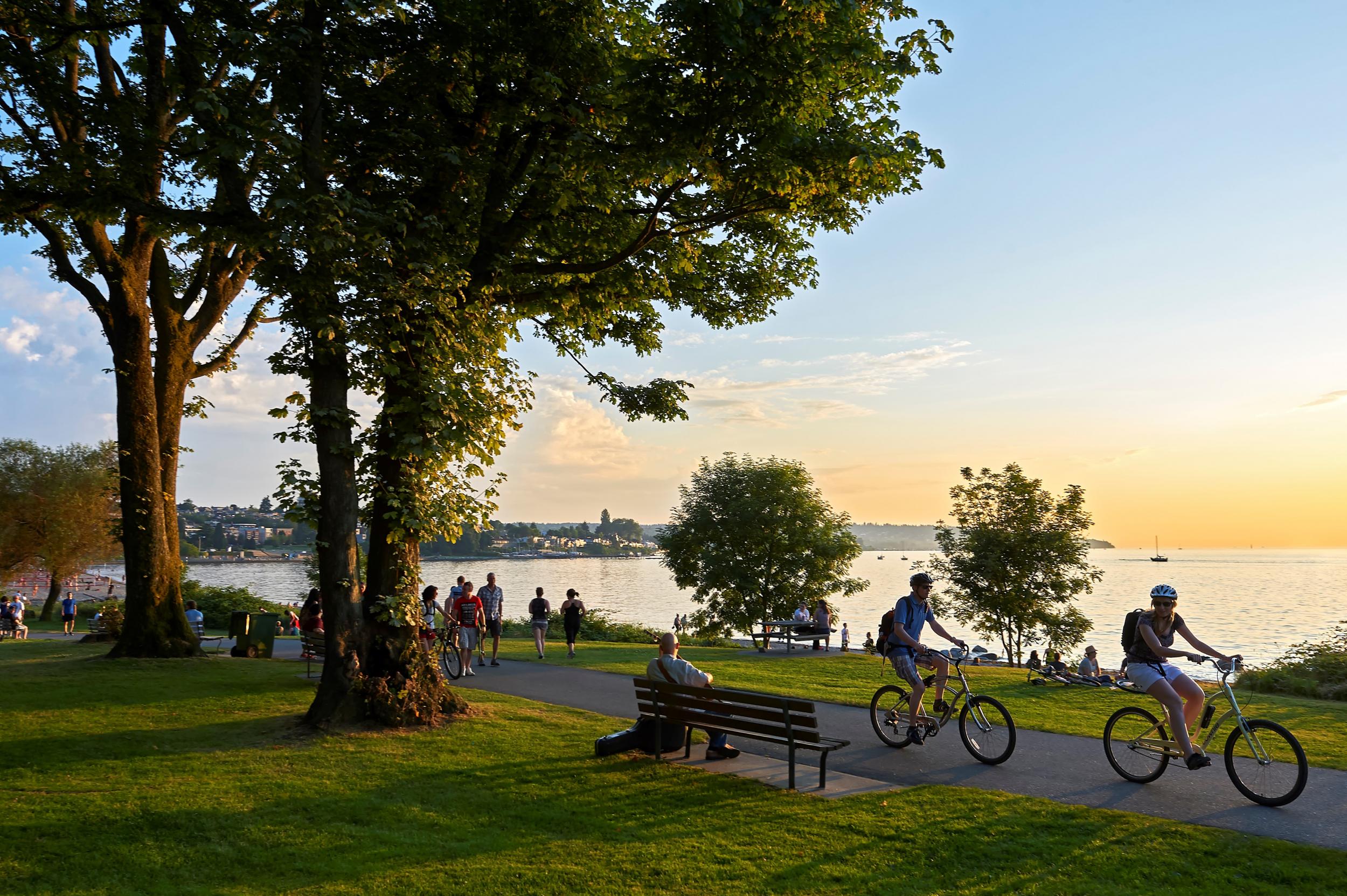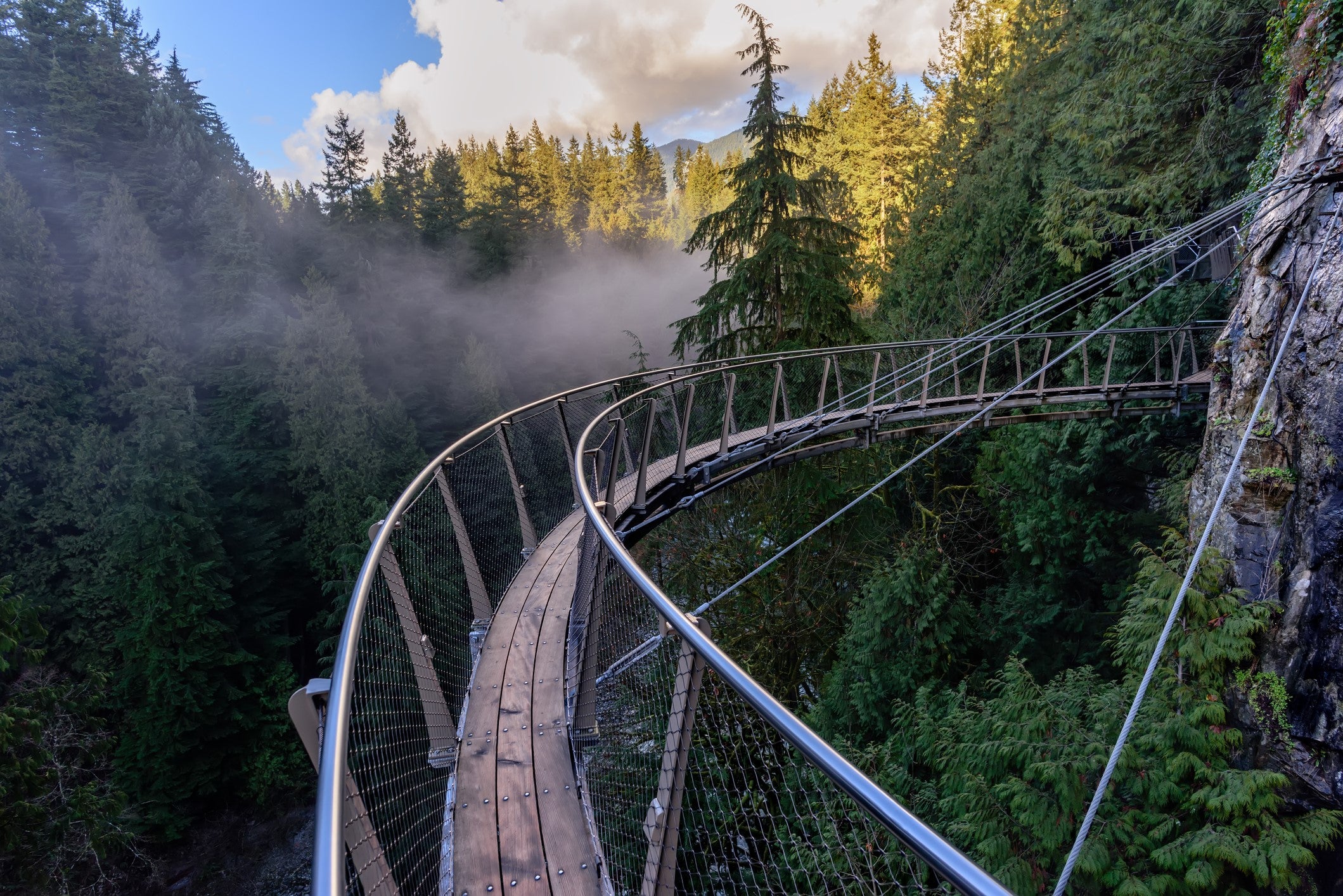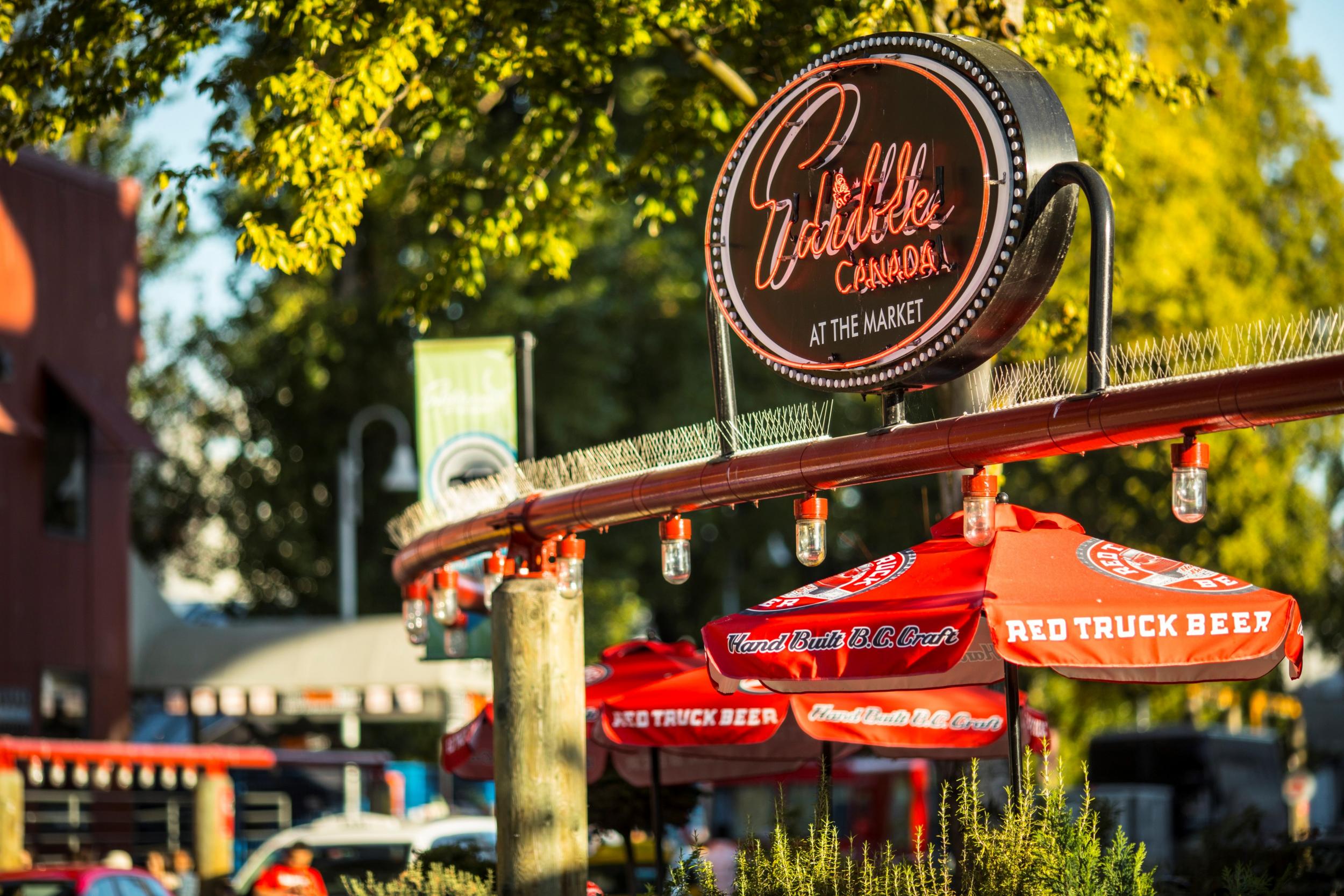Is Vancouver the greenest city on the planet?
Birthplace of Greenpeace and home to an airline that’s just successfully tested the world’s first all-electric plane, Canada’s west coast wonder brims with next-level eco-credentials, says Mike MacEacheran

The Independent’s hotel recommendations are unbiased, independent advice you can trust. On some occasions, we earn revenue if you click the links and book, but we never allow this to affect our coverage.
Canadians are a caring bunch. Not only did they give us maple syrup, heart-warming poutine, ice hockey and Celine Dion, but they’ve been responsible for some of the most forward-thinking, green initiatives the world has ever seen. Greenpeace was born nearly 50 years ago in Vancouver back in 1971, and the evironmental charity has inspired holidaymakers to rethink travel without killing the planet ever since.
Fittingly, Vancouver has continued to lead the world in urban sustainability and its latest brainstorming solution is emission-free flying. Last month, Canadian floatplane operator Harbour Air successfully flew the world’s first all-electric commercial aircraft, with CEO and founder Greg McDougall piloting the prototype on a three-minute flight from Vancouver International South Terminal. The plan for the 53-strong fleet – one that’s already carbon-free, making it the largest carrier of its kind in North America – is to be completely battery-powered by summer 2022.
Nowadays, it’s hardly surprising that electric planes – or ePlanes – are an only-in-Vancouver sight. If you didn’t know already, the city claims the smallest carbon footprint of any in North America and thanks to an explosion of eco-friendly strategies has a goal of becoming the greenest city in the world.
Currently, more than half of journeys in the city are made by walking, biking or using transit, and with a rental bike you can cycle on its 300-plus kilometre network. One route takes you around Stanley Park, a world-enlarging swathe of seriously wild urban parkland populated by beavers and bald eagles, and the accumulative effect of Tetris-like tree arrangements in the grid of streets between is something to celebrate. During next year, another 150,000 new trees will be added to the city’s green canopy.

By dint of its proximity to such Amazon-like wilderness and the evergreen trails of Grouse Mountain across the Georgia Strait, wilderness has long been as integral to the Vancouver way of life as genetically ingrained politeness is to Canadians. Commuting to work by sea kayak isn’t unheard of. Neither is a pre 9-5 summit hike on the staggeringly steep Grouse Grind (locals call it Mother Nature’s stairmaster; you can get a gondola ticket £9). You also can’t leave North Vancouver without going into the cradle of the North Shore Mountains. The must-see is the Capilano Suspension Bridge (£31), a Klondike-era backwoods ribbon of steel strung across an evergreen canyon. You step out above the swirling river mist, keeping watch for mountain lions and black bears in the woods below. Here, embracing and looking after the great outdoors is intuitive.
The view from above all this, in a Harbour Air floatplane (flightseeing from £57) looking down on conifer-covered mountains, gives a taste of the area’s green credentials – and remote ruggedness. Out the window, vast belts of spruce, cedar and pine thrive from sea to sky, their tops home to eagles, their bald crowns almost indiscernible from the tips of the trees. It’s a killer combination, and within the next few years you’ll be able to see it all emissions free.
As to how Vancouver ended up here, the answer is simple. In 2009, former mayor Gregor Robertson made a citywide pledge to make it the world’s greenest metropolis, leading a comprehensive action plan that rethought and re-evaluated the way residents and visitors interacted with their environment. And then – a rare thing in an era of paper-thin political promises and populist manipulation – he was true to his word.

Among the initiatives, more than 20 hectares of natural area have been restored. North America’s first hybrid taxi was launched. The number of electric vehicles and charging stations has increased tenfold. The city has seen a 56 per cent decrease in greenhouse gases. As it turns out, there is nothing like the threat of the end of the world for focusing minds.
While Vancouver nails the whole eco-friendly-sustainable thing for residents, it also helps fill the days with green-themed tours for visitors. If design and architecture are for you, download the free Green Building Audio Tours for stories of the city’s smartest structures. For a wander around one of the planet’s greenest neighbourhoods, Southeast False Creek has bikeways and seaside walks, plus urban beehives, backyard chicken coops and fish habitats. It was built for the Vancouver 2010 Winter Games and it remains clad in foliage and populated by unassuming, green-tinged restaurants.

Edible Canada, located a short bike ride away on Granville Island, serves up seasonal mains like Pacific wild salmon, bison tartare and confit duck poutine on beach-scavenged furniture and recycled fir tables – making it a uniquely Vancouver experience. Or try Forage on Robson Street in Downtown: Welbert Choi’s farm-to-fork institution leads the city in championing provenance and zero waste — the way things should be. As well as growing his own veggies, he catches his own fish, composts all food waste and keeps bees.
It’s a lot to take in, but you’ll either leave feeling inspired to do more when you return home (perhaps now’s the time to invest in a backyard beehive?), or filled with a certainty that you’ll now only travel to destinations tackling the world’s climate problems head on. You’ll just need to get there on an emissions-free, carbon-neutral flight first.
Travel essentials
Getting and staying there
British Airways flies from London Heathrow to Vancouver, with fares from £472 return.
Located in the heart of Downtown, The Exchange Hotel has doubles starting from £114, room only.
The Fairmont Waterfront Hotel, with rooms from £178, has an urban beekeeping programme and is a partner of local non-profit Hives For Humanity.
More information
For more information on visiting Vancouver, visit Tourism Vancouver.
Join our commenting forum
Join thought-provoking conversations, follow other Independent readers and see their replies
Comments